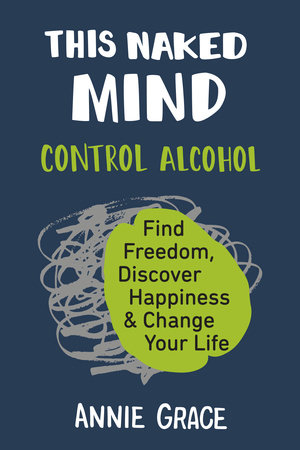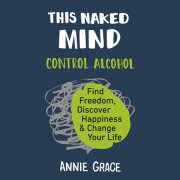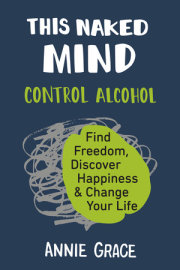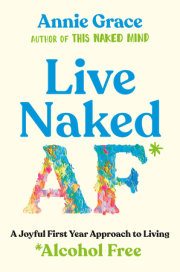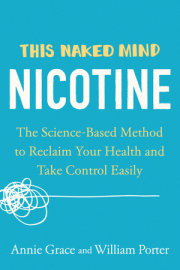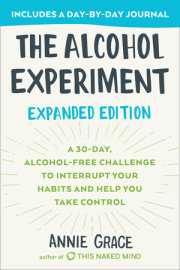3:33 a.m. I wake up at the same time every night. I briefly wonder if that is supposed to mean something. Probably not, probably just a coincidence. I know what’s coming, and I brace myself. The usual thoughts begin to surface. I try to piece the previous evening together, attempting to count my drinks. I count five glasses of wine, and then the memories grow fuzzy. I know I had a few more, but I’ve now lost count. I wonder how anyone can drink so much. I know I can’t go on like this. I start to worry about my health, beginning the well-trodden road of fear and recrimination: What were you thinking? Don’t you care about anything? Anyone? How will it feel if you end up with cancer? It will serve you right. What about the kids? Can’t you stop for the kids? Or Brian? They love you. There’s no good reason why, but they do. Why are you so weak? So stupid? If I can just make myself see the horror of how far I’ve fallen, maybe I can regain control. Next come the vows, my promises to myself to do things differently tomorrow. To fix this. Promises I never keep.
I’m awake for about an hour. Sometimes I cry. Other times I’m so disgusted that all I feel is anger. Lately I’ve been sneaking into the kitchen and drinking more. Just enough to shut down my brain, fall back asleep, and stop hurting.
These early mornings are the only time I’m honest with myself, admitting I drink too much and need to change. It’s the worst part of my day, and it’s always the same, night after night. The next day it’s as if I have amnesia. I turn back into a generally happy person. I can’t reconcile my misery, so I simply ignore it. If you ask me about drinking I’ll tell you I love it; it relaxes me and makes life fun. In fact, I’ll be shocked if you don’t drink with me. I will wonder, “Why on earth not?” During the day I feel in control. I am successful and busy. The outward signs of how much I drink are practically nonexistent. I am so busy that I don’t leave room for honesty, questioning, and bro- ken promises. The evening comes, the drinking starts, and the cycle continues. I am no longer in control, and the only time I am brave enough to admit it (even to myself) is alone, in the dark, at three in the morning.
The implications of what it could mean are terrifying. What if I have a problem? What if I am an alcoholic? What if I am not normal? Most terrifying, what if I have to give up drinking? I worry that my pride will kill me because I have no intention of labeling myself. I am afraid of the shame and stigma. If my choice is to live a life of misery in diseased abstinence or drink myself to an early grave, I choose the latter. Horrifying but true.
What I know about getting help, I know from my brother who spent time in prison. Prison in the U.S. often involves Alcoholics Anonymous (A.A.) meetings. He says you start every meeting admitting that you are an alcoholic powerless against alcohol. He says they believe alcoholism is a fatal illness without a cure. And I personally know self-proclaimed alcoholics who, rather than finding peace, fight a daily battle for sobriety. It seems miserable in our culture to be sober. To live a life avoiding temptation. Recovering appears synonymous with accepting life as just OK and adjusting to a new reality of missing out.
The idea of recovering seems to give alcohol more power even, and maybe especially, when I am abstaining from it. I want freedom. It’s now clear that alcohol is taking more from me than it’s giving. I want to make it small and irrelevant in my life rather than allowing it more power over me. I want change. I have to find another way. And I have
.
I now have freedom. I am back in control and have regained my self-respect. I am not locked in a battle for sobriety. I drink as much as I want, whenever I want. The truth is I no longer want to drink. I see now that alcohol is addictive, and I had become addicted. Obvious, right? Not exactly. In fact, in today’s drinking society, it’s not obvious at all. Admitting that alcohol is a dangerous and addictive drug like nicotine, cocaine, or heroin has serious implications. So we confuse ourselves with all sorts of convoluted theories.
I’ve never been happier. I am having more fun than ever. It’s as if I have woken up from the
Matrix and realized that alcohol was only dulling my senses and keeping me trapped rather than adding to my life. I know you may find this hard, if not impossible, to believe. That’s OK. But I can give you the same freedom, the same joy, and the same control over alcohol in your life. I can take you on the same journey—a journey of facts, neuroscience, and logic. A journey that empowers you rather than rendering you powerless. A journey that does not involve the pain of deprivation.
I can put you back in control by removing your desire to drink, but be forewarned, getting rid of your desire for alcohol is the easy part. The hard part is going against groupthink, the herd mentality of our alcohol-saturated culture. After all, alcohol is the only drug on earth you have to justify
not taking.
Experts imply that it takes months, even years, of hardship to stop drinking. A tough riddle can make you crazy, taking forever to solve. But if someone gives you the answer, solving the riddle becomes effortless. I hope this book will be the answer you are looking for.
I offer a perspective of education and enlightenment based on common sense and the most recent insights across psychology and neuroscience. A perspective that will empower and delight you, allowing you to forever change your relationship with alcohol. And remember, sometimes what you are searching for is in the journey rather than the destination.
Copyright © 2018 by Annie Grace. All rights reserved. No part of this excerpt may be reproduced or reprinted without permission in writing from the publisher.

